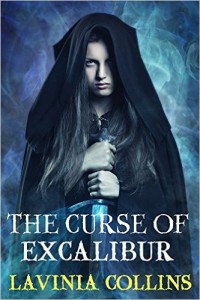The test of a first-rate intelligence is the ability to hold two opposed ideas in the mind at the same time, and still retain the ability to function.- F Scott Fitgerald.
Yeah, I’m a freakin’ genius. I love historical fiction that is researched and full of interesting details. I also love fantasy (yes, I’m a sword and sorcery geek, sue me.) These two ideas come together, and often seem to clash. A good case in point is the sub-genre called “Arthurian fiction.”
From my earliest memories, the story of Arthur and the Knights of the Round Table have thrilled me. But was Arthur an actual historical character? If so, what about Merlin, who was a magician, after all? This has led to a schism between those who love “Arthurian Fantasy” and a more factual, history-based approach. Two of my favorite current writers take opposite approaches to the same source material.
Jack Whyte, the author of The Camulod Chronicles painstakingly researches his

books and places them in a gritty, dark period between the fall of the Roman empire, and the beginnings of that bizarre mix of Celts and Saxons that created pre-Norman Britain. I love his stuff: dark, philosophical, as close to “realistic” as something lost in the fog of time could be. If you’re not reading him, you should be. Just saying.
Lavinia Collins, on the other hand, writes Arthurian fantasy full of magic, sex and a Celtic/feminist approach. Here’s the thing, though. It’s not like she doesn’t know her history. The background of the stories is well researched and true to the period. She just chooses

to use the known history of the time as the starting point to spin a great yarn. Does that mean it’s not “historical fiction?” She has written a wonderful blog post about that dilemma in fact. Click here to read it.
A case in point is where Excalibur came from. Jack says it was forged from the metal that came from a meteorite, so it had unusual properties. According to Lavinia, it was forged by a woman blessed with magic in the caves under Avalon.
Is either “true?” Does it matter? I prefer to just enjoy them both. How about you?